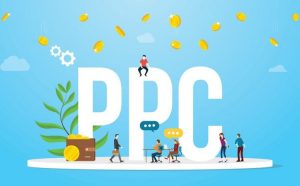How to Choose the Right Keywords for your Optimize PPC Campaign

PPC is an incredible advertising model that helps drive more traffic to your website. But, in order to drive the right traffic to your site, you need to choose the right keywords. Choosing the right keywords is the key to a successful PPC campaign. So, in this article, we’ll tell you how to choose the right keywords for your next PPC campaign.
Explore the Keyword Categories
Putting yourself in the customers’ shoes is the best way to know about the search terms they might be looking for. Whatever the search terms they are, write them! Below are the keyword categories to explore that can help you get an idea of the search terms-
Branded Keywords
Branded search keywords contain your brand name. They have a high-quality score and low cost. And, the biggest advantage of bidding on these terms is they get you qualified leads, excellent CTR, and conversion rates. They are of two types, i.e., keywords with your own brand and the keywords that your competitors are branding.
Let’s say you are selling jewelry and you know that your clients will search for diamond rings; your targeted keywords could be an oval-cut diamond ring or a girl’s diamond ring. This way, when your clients search for anything related to diamond rings, they will come across your keywords as well. Furthermore, using this strategy, you can directly compete with your customers and ensure that your business ranks with the right keywords.
Long-Tail Keywords
These keywords are specific, long, and unique phrases that are low in cost and have less competition. They have low search volume and get limited impressions, though. Keywords like ‘counter height dining room set for a kitchen’ come under long-tail keywords and look more specific when someone searches for your brand or product. Just keep in mind that the more specific your search, the higher will be the internet of users to come across your brand or business.
Commercial Keywords
These types of keywords consist of high-intent terms that are valuable for your how to optimize ppc campaign. Generally, the prospects who are close to the bottom of the sales funnel using these search terms. These keywords are more specific but can also take more than one form. For instance ‘furniture sale’ keyword could be used as ‘memorial day furniture sale,’ ‘furniture store free delivery,’ ‘high sales with high-interest credit. Each of these keywords is not specific but also clear what users are looking for.
Competitive Keywords
Though competitive keywords are costlier, you should allocate some budget towards them. These keywords help you put your brand in front of those searching for your competitors’ offerings.
Look for the keyword type that fits your PPC advertising strategy. You can use Google Search Console to know which search terms people are using. If you find that a particular search term appears repeatedly, use Google Analytics to determine if it is getting you purchases.
Target keywords into Ad Groups:
Ad groups are those groups that users see to look for a specific ad campaign. Let’s say you have a campaign of party wear dresses for keywords like party dresses, fashion dresses, and more. In this, you will not include keywords like office wear dresses or lounge dresses. One main advantage of using these keywords is that you can easily select the one that you want and add them to the different ad groups. This will also eliminate the process of copy and pasting.
Compare The Cost
Higher is the keyword’s competition; higher is the cost. Also, the higher is the search volume; the higher is the CPC. Don’t aim for the cheapest keywords, but choose the right ones while keeping a balance between your budget and business goals.
Focus More On Long Tail Keywords
Long-tail keywords are more specific search phrases that have the advantage of being highly targeted. If a user is typing a specific phrase in the search bar, it implies that they know what they want and are ready to make a purchase.
So, create long-tail keywords based on the industry, products, and services you offer, etc. You can add some more product specifications, such as salient features, color, size, geographical terms, and more. In order to find the most relevant long-tail keywords, you can use Google’s keyword tools.
Use Negative Keywords Too
Negative keywords include terms you don’t want your PPC ads to appear in the searches for. For this, look at the Google Search Console. If you find any terms that don’t fit your campaign or goals, add them to the negative keywords list. Doing so will help you filter the more generic terms that don’t relate to your brand.

Once you have found your PPC keywords, consider grouping them in a well-organized way. Group the keywords properly and target your keywords properly to improve your Ad’s quality score and save your time, money.
Track How Much You Spend
It is essential to see how the keywords you have chosen are performing or how well they are converting into sales. This lets you know whether the keywords you are bidding on are generating sales or not. This way, you can calculate your ROI. If this shows a positive ROI, it implies that you can boost the campaign. However, if some of the keywords are underperforming, it’s time to stop bidding on them and save yourself from spending money unnecessarily.
Conclusion
Choosing the right keywords is the trickiest yet critical part of setting a PPC marketing campaign. If you couldn’t choose the right keywords, you just waste your valuable time and money. But, if you take the time to research the right keywords, you can make the most out of your paid search campaign. So, refine your keyword research and be patient. The time and effort you put into finding the right keywords will result in increased traffic, better brand awareness, higher CTR, and more sales.
There you have it: Five tried-and-trusted steps on how to optimize a PPC campaign?
Remember, PPC optimization isn’t a one-and-done thing. It involves several stages, and you need to improve your campaign in every stage continuously.



